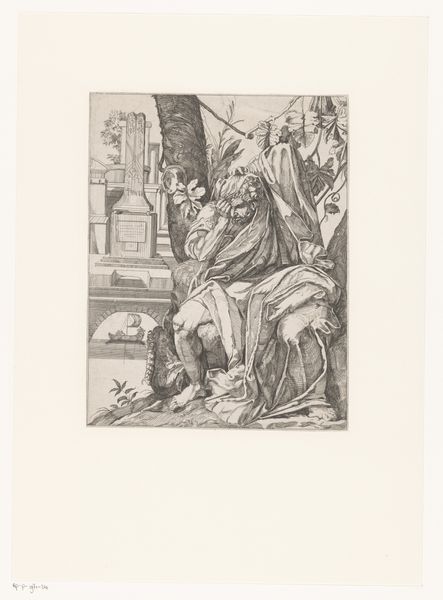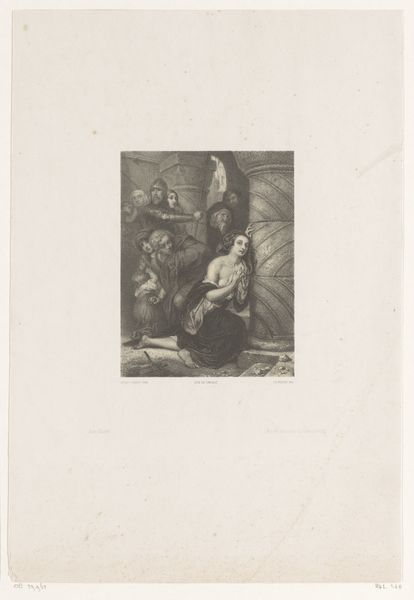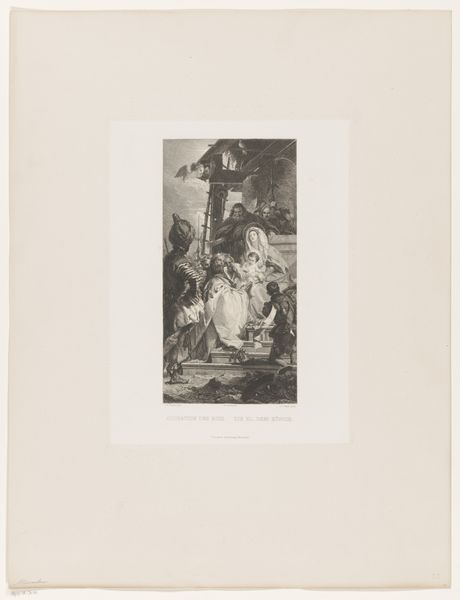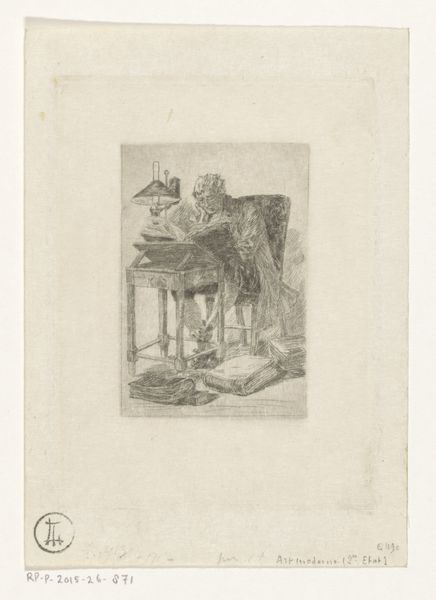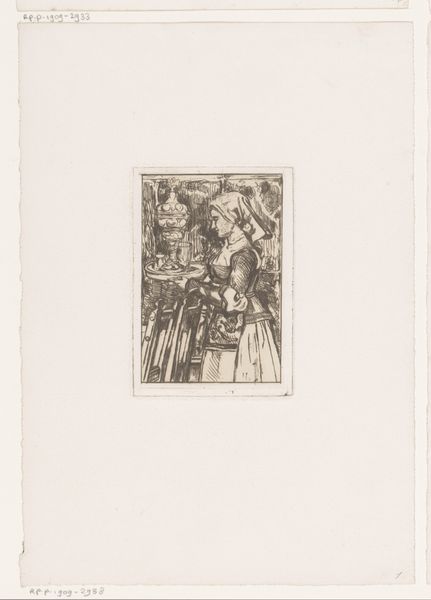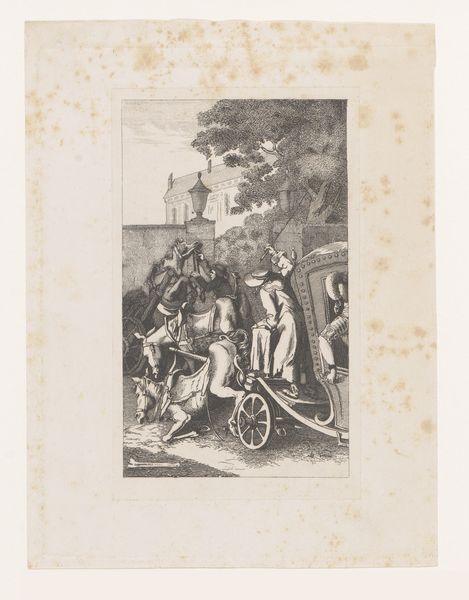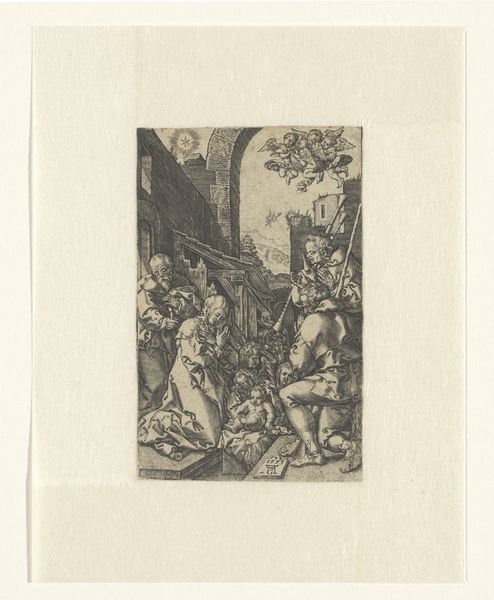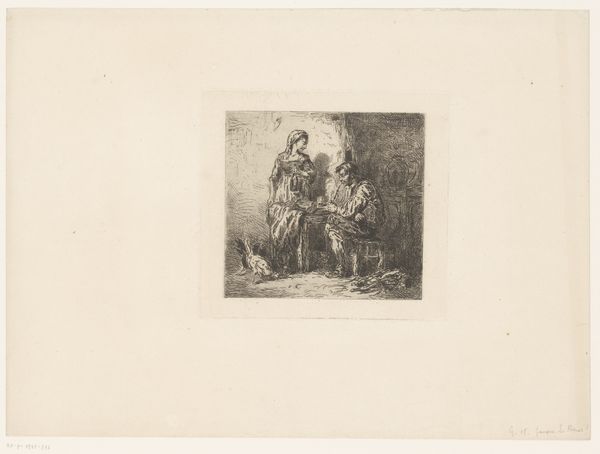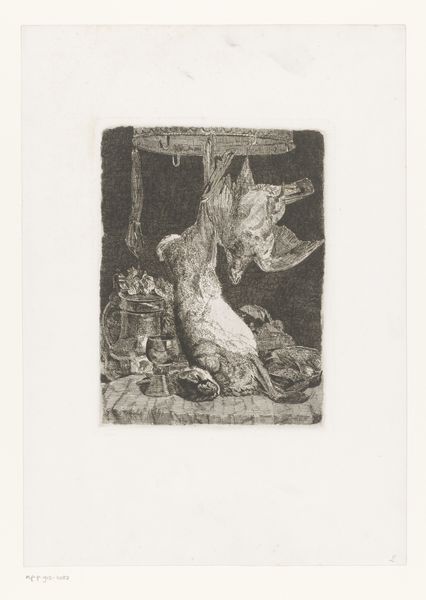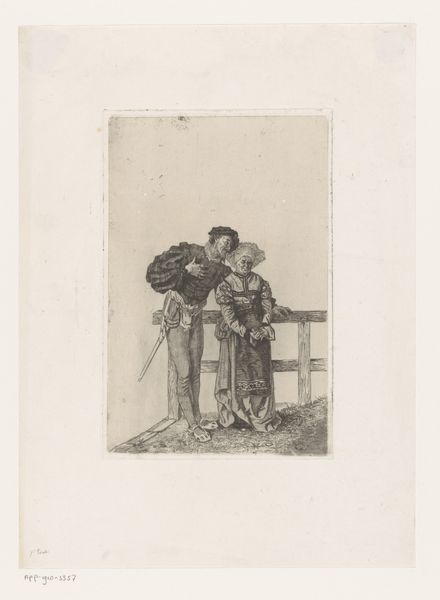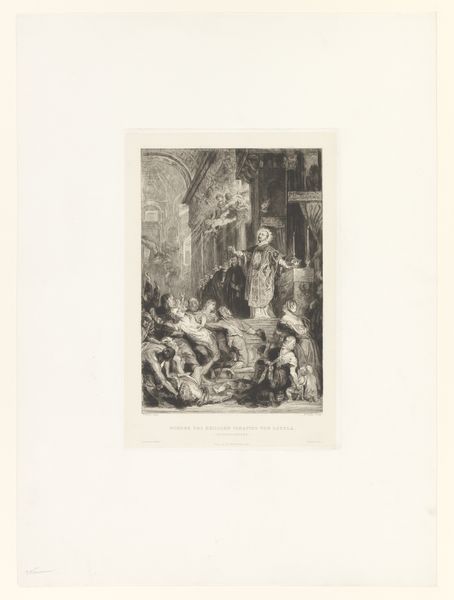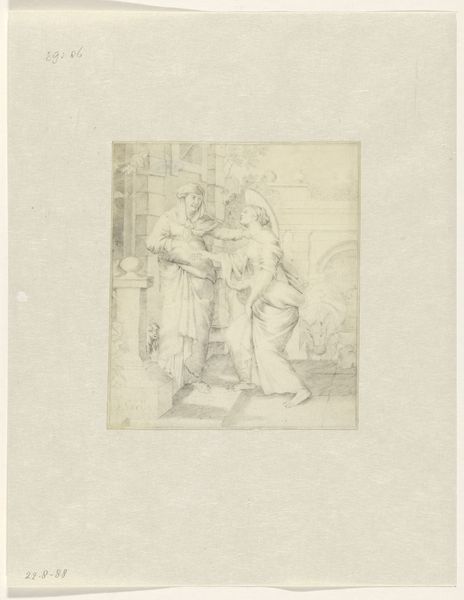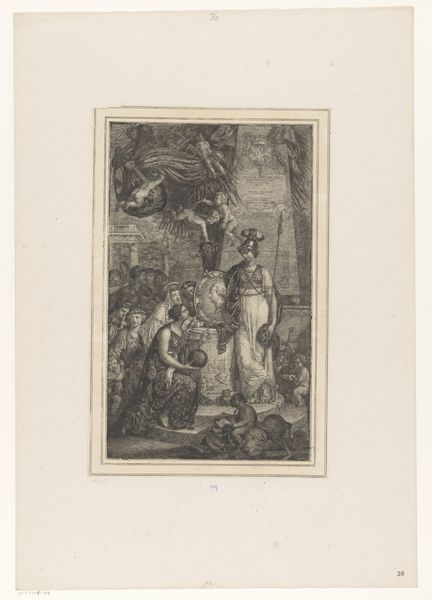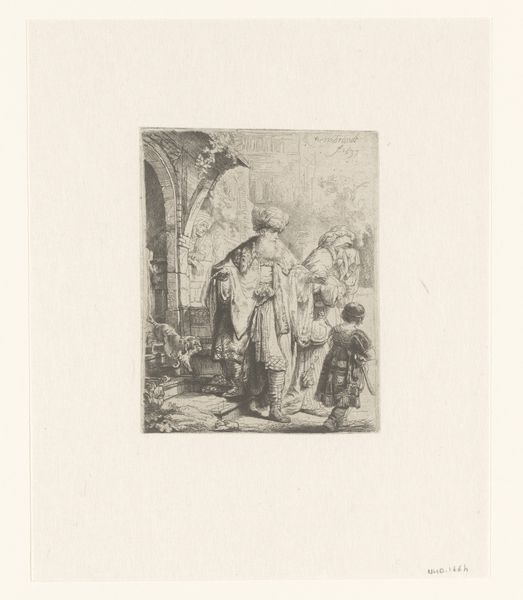
print, etching, engraving
#
portrait
#
allegory
#
baroque
# print
#
etching
#
old engraving style
#
figuration
#
line
#
history-painting
#
engraving
Dimensions: height 161 mm, width 115 mm
Copyright: Rijks Museum: Open Domain
Editor: Antoine Rivalz's "Muze van de schilderkunst", made between 1695 and 1699, rendered as an etching. It's a beautifully detailed print, but its almost chaotic composition makes me wonder... what do you see in this piece? Curator: Chaos, you say? Maybe it's more like... potential. Rivalz is laying out all the ingredients. That figure, representing Painting, isn't just standing there; she’s presiding over a studio positively brimming with classical allusions and painterly detritus. What do you think is most striking? Is it the figure’s garb or the mess of objects surrounding her? Editor: I think I’m drawn to the mix of very clear lines in her figure, compared to, say, the swirling forms behind her that don't look super crisp to me. And, of course, there’s a city rising behind! Do these choices relate to allegory as a whole? Curator: Exactly! Allegory demands precision in symbolism, a legible code for viewers to decipher. Those swirling forms aren't simply "not crisp," but puffs of divine inspiration. The cityscape suggests grand ambition, while classical architecture nods to enduring ideals. What does that tell us about painting’s role, then? It is a skill, a discipline, but also more than that! Editor: So it's like Painting is mediating between earthly ambition and heavenly inspiration. That is more potent than just calling it "messy!" Curator: Precisely! Rivalz makes the argument for painting's elevated status, and maybe comments on the balancing act any creative pursuit asks of us. Thanks for that spark. It's easy to dismiss prints, to see just black lines, instead of portals of invention.
Comments
No comments
Be the first to comment and join the conversation on the ultimate creative platform.
